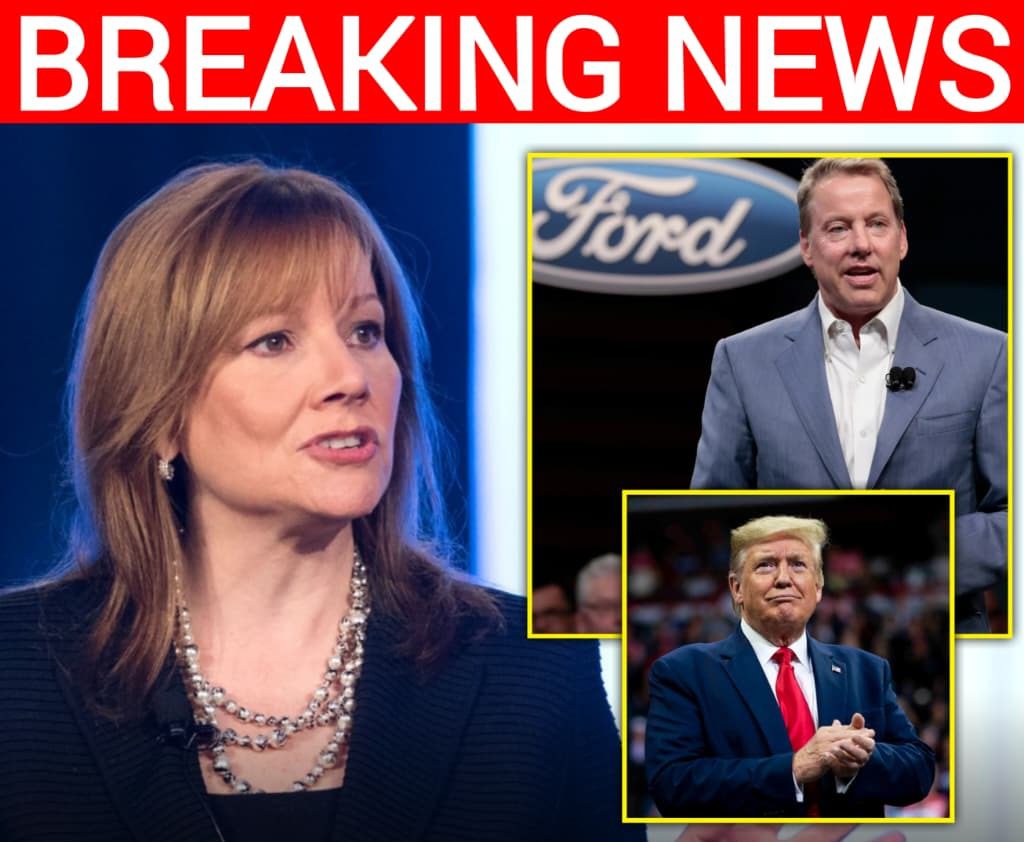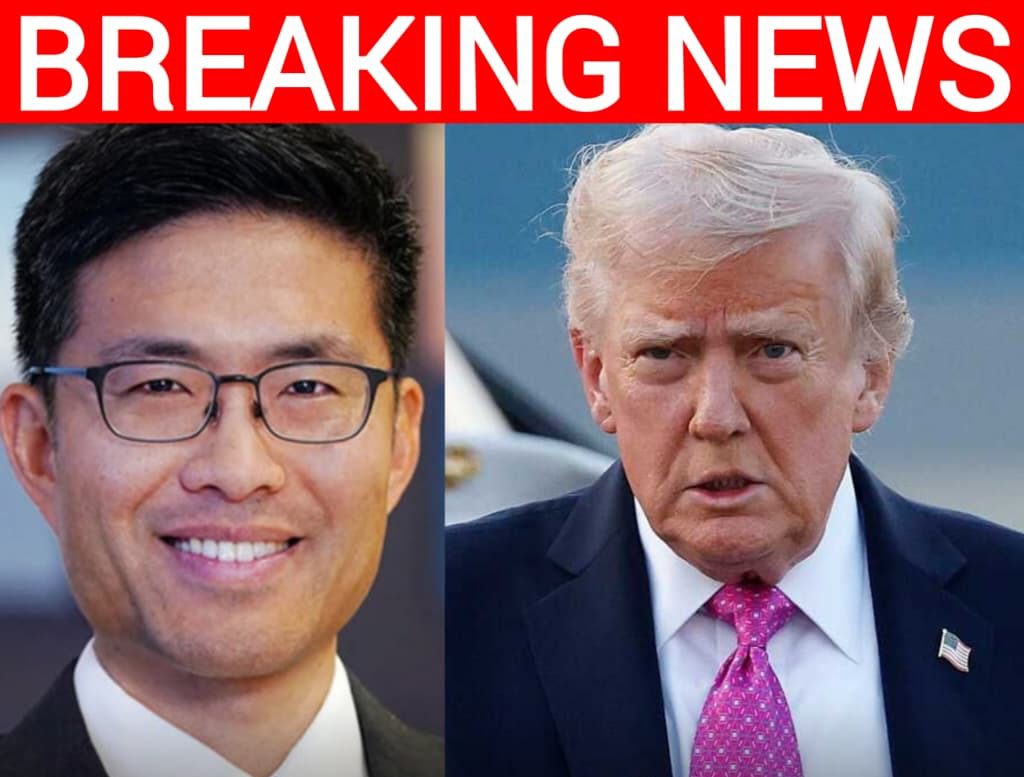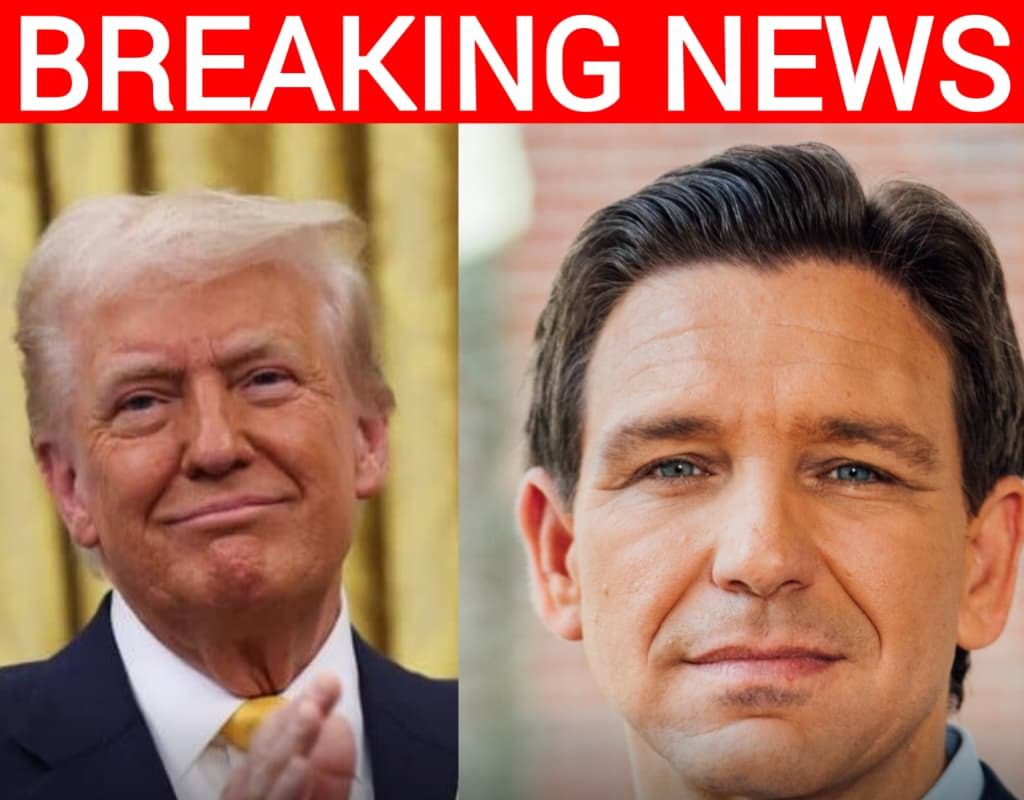Automaker Giants GM and Ford Thank President Trump for “Saving U.S. Industry” with Tariffs — Stocks Surge as Predictions of Economic Collapse Proven Wrong
In a development that caught Washington and Wall Street by surprise, both General Motors CEO Mary Barra and Ford Motor Company Executive Chairman Bill Ford personally called President Donald Trump to thank him for his new 25% tariffs on imported mid-size and large-size trucks. The conversation, which Trump shared in a statement on October 22, 2025, marks a striking turn in the ongoing debate over tariffs, manufacturing, and national security — one that appears to be paying off for American automakers.

“Mary Barra of General Motors and Bill Ford of Ford Motor Company just called to thank me for putting tariffs on mid-size and large-size trucks. Their stock has gone through the roof!” Trump wrote. “They told me that, without tariffs, it would be a very hard, long slog for truck and car manufacturers in the United States. I told them it’s very simple — this is a national security matter. With the tariffs, we have a strong and powerful economy and country. Without them, we have the exact opposite!”
Trump’s post comes five days after his administration announced sweeping new tariffs targeting imported mid- and large-size trucks, effective November 1. The move immediately divided economists, who warned of potential price increases and international pushback. Yet, just days later, the markets seemed to tell a different story. GM shares jumped more than 5% following the company’s quarterly earnings report, while Ford saw a similar rise — their strongest combined performance in over a year.
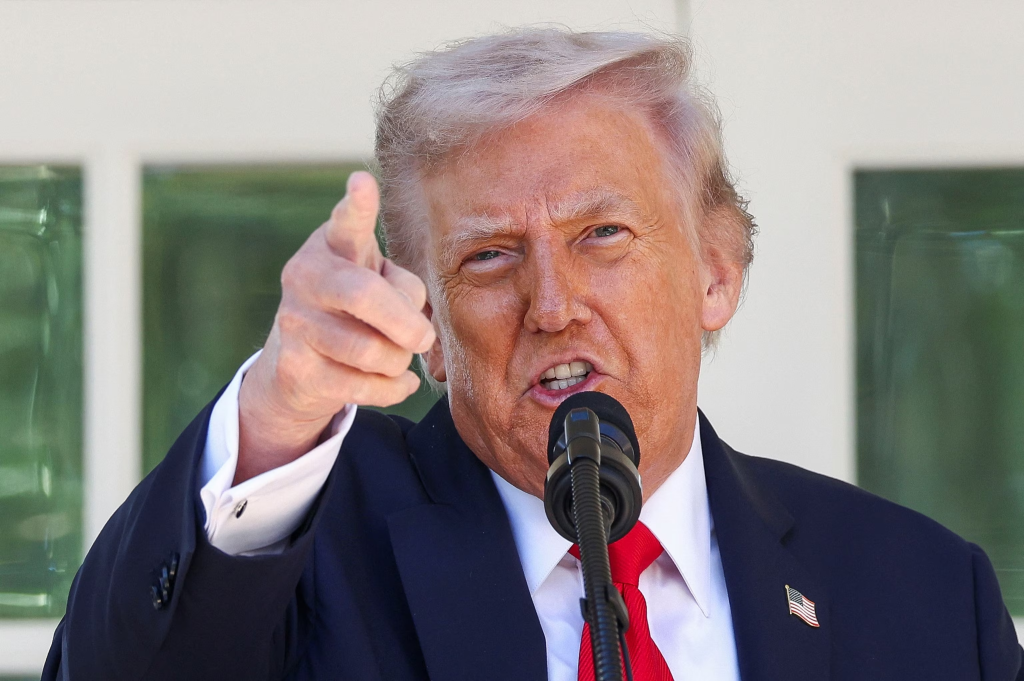
According to industry analysts, part of the surge stemmed from optimism surrounding the administration’s inclusion of a five-year MSRP offset extension, which allows U.S.-assembled vehicles to absorb some of the tariff costs without penalizing domestic buyers. This policy effectively shields American automakers from the full brunt of the import duties while incentivizing production at home.
GM CEO Mary Barra had already hinted at her approval during the company’s third-quarter earnings call, saying that the tariff plan “provides long-term stability for American manufacturing and strengthens the domestic supply chain.” Those remarks — now followed by her direct call to Trump — have confirmed that major automakers see the policy as a net benefit for U.S. industry.

For Ford, which has struggled through recent restructuring costs and slowing EV demand, the news offered a rare boost of momentum. Bill Ford reportedly emphasized to the President that the tariffs had created a “level playing field” for American manufacturers, allowing them to compete more effectively against low-cost foreign imports.
The administration’s trade team has framed the tariffs as part of a larger economic security effort, linking industrial strength directly to national defense. “Truck manufacturing is not just a jobs issue — it’s a national security issue,” a senior official said earlier this week. “If America loses the ability to build its own heavy-duty vehicles, it loses control over a critical part of its defense and logistics infrastructure.”
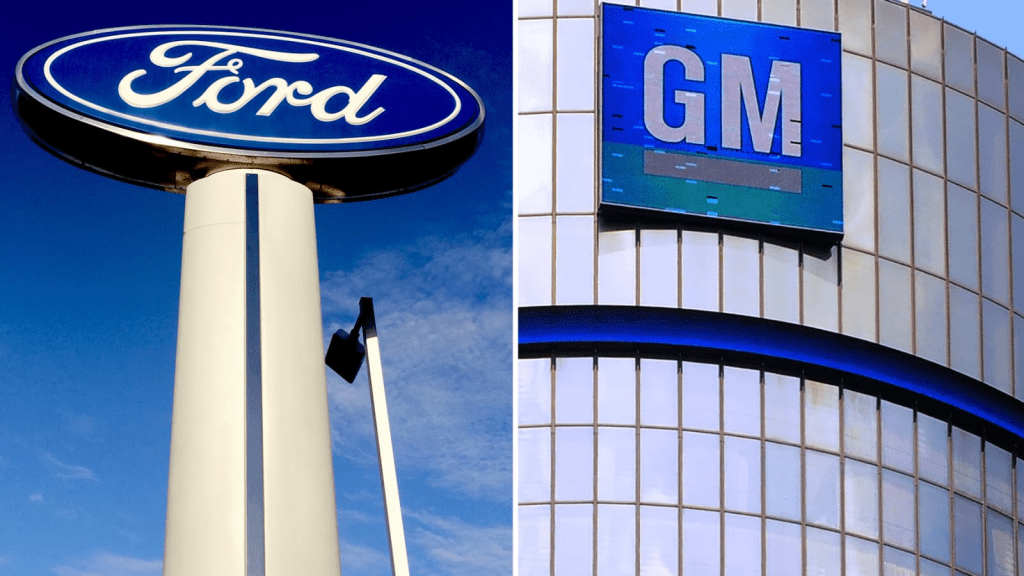
Critics had long warned that such tariffs would spark inflation and harm American consumers, echoing early predictions of a “Great Depression-style shock.” But with stocks rising, factory optimism climbing, and manufacturing indices trending upward, those forecasts are beginning to sound hollow. Even some economists who opposed tariffs now concede that the carefully structured rollout — with targeted offsets and domestic incentives — has mitigated most short-term pain.
Republicans in Congress were quick to celebrate the news as validation of Trump’s long-held trade philosophy. “For years, he was told tariffs would destroy the economy. Instead, they’re reviving American industry,” one GOP lawmaker remarked. Conservative commentators echoed the sentiment, noting how the image of automaker CEOs thanking the President directly underscored the policy’s success.


While global trade partners may still bristle at the move, the reaction inside America’s heartland tells a different story. Workers in Michigan, Ohio, and Kentucky — the backbone of the nation’s auto industry — are already calling the tariffs a “lifeline” for domestic production. As one Ford plant supervisor in Dearborn put it, “For once, Washington did something for the American worker, not just for the stockholders.”
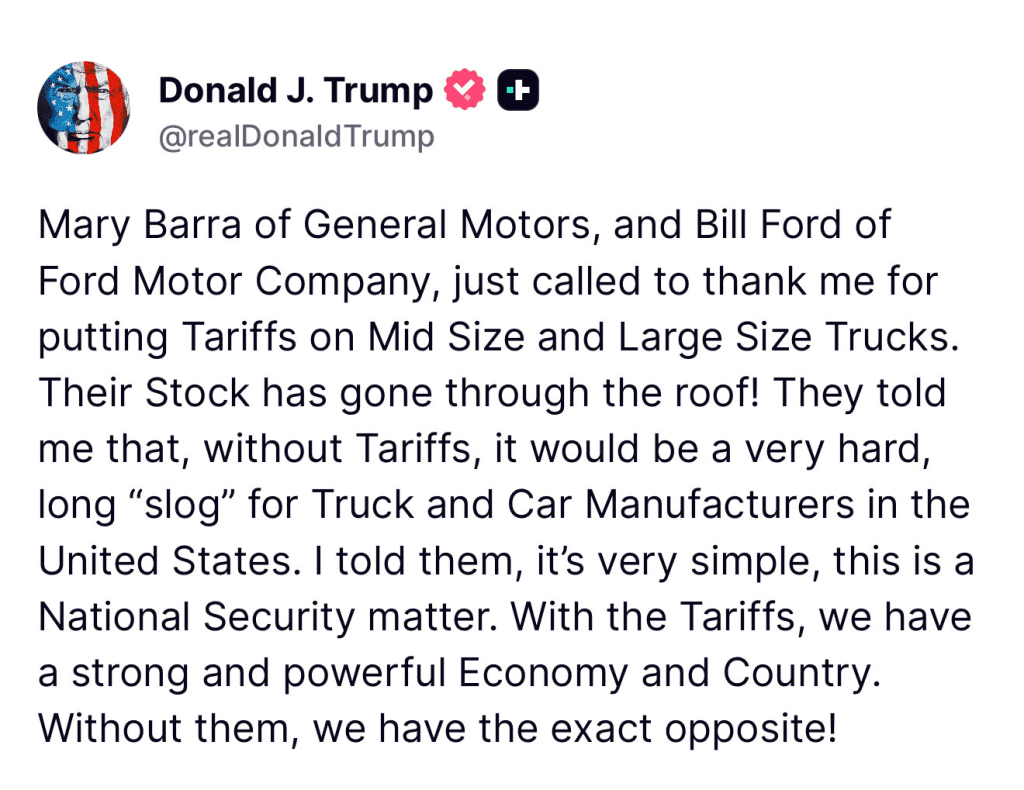
With both GM and Ford stocks surging and public sentiment shifting, Trump’s decision appears to be reshaping not just the auto industry, but the broader narrative around tariffs and trade itself. What was once dismissed as economic brinkmanship is now being seen — even by corporate America — as a bold strategy that just might have saved U.S. manufacturing from decline.
